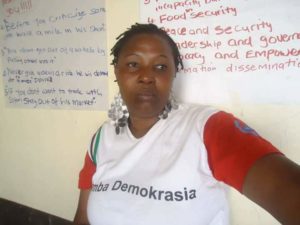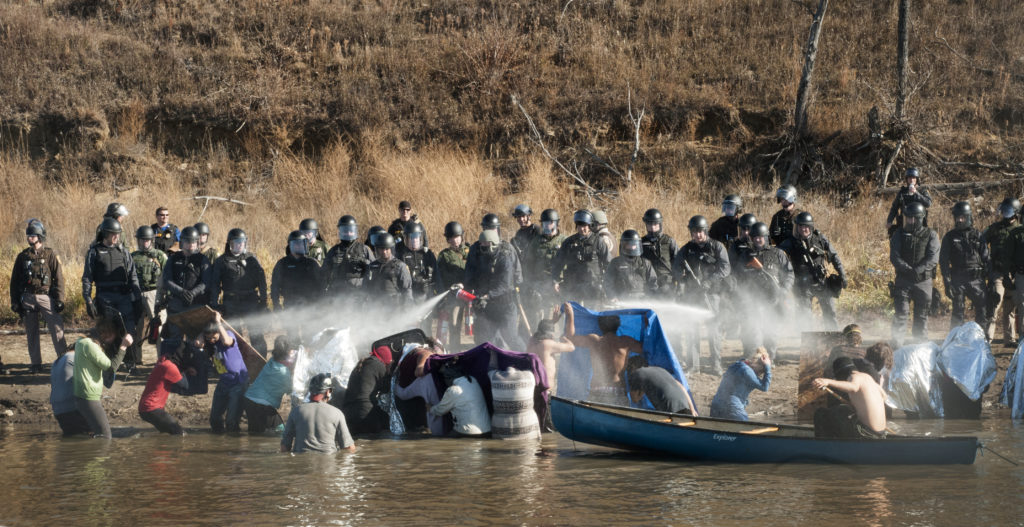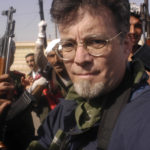Minds of the Movement
An ICNC blog on the people and power of civil resistance
by Joel Preston SmithDecember 15, 2017
Human rights activist Beatrice Karore was five months pregnant when she was shot twice in the hips with rubber bullets and beaten by police Oct. 14, 2012, after a protest against lawlessness in Mathare, a shantytown in Nairobi, Kenya.
Two hours earlier, Karore stood on a dirt road that transects the slum, staring at the bodies of two young men who’d been knocked off their motorcycle and clubbed to death. A crowd was gathering—angry, vocal, demanding that police take action. Karore, who was known as a social justice organizer and had made something of a name for herself by running for (but losing) a seat on the Nairobi County Assembly the preceding December, led the procession to the Humura Police Station in Nairobi.

Human rights activist Beatrice Karore, Nairobi, Kenya. Source: Karore Facebook page.
Karore and other demonstrators were chased, captured, beaten, arrested and imprisoned. She lost the child in a miscarriage shortly thereafter, and descended into depression, nightmares, sleeplessness, and constant fear for her and her family’s safety.
Only the details make Karore’s story unique. The main themes—frustration, fear, physical and mental wounds—are common in dozens of nations where human rights work might be classified as an occupational hazard. Because no agency has addressed those hazards in the context of nonviolent civil resisters’ health, I founded Frontline Wellness United earlier this year with a group of healthcare providers and activists who’d volunteered in the chaotic Dakota Access Pipeline Resistance camps in North Dakota in the United States this past winter. Protesters there were pepper-sprayed, beaten, and shot with rubber bullets by police, but the camps themselves―which at their peak may have numbered as many as 9,000 ‘residents’—also suffered from internal strife, including racial hatred, physical assault, sexual assault and other forms of conflict, along with the fear and anxiety that accompany living in violent, unpredictable circumstances.

Morton County Sheriff's deputies douse Dakota Access Pipeline protesters with pepper spray. Nov. 2, 2016, North Dakota, USA. Credit: Author.
Civil resistance leaders and activists might be more motivated to address health issues internal to movements if they considered activism as a form of labor subject to the same productivity issues that accompany any ‘industry’ in which the quality of products, and the volume of ‘output’ is dependent on workers’ health. Consider, for example, a 2016 study published in LSE Health and Social Care which estimated that up to 4.5 percent of a given nation’s gross domestic product may be lost to worker depression alone. If we believe that peace, human rights and environmental justice have both cultural and economic value, then it behooves movement workers to address the health needs of activists committed to creating those ‘products.’
But that’s a long-term solution, and we are hurting now. How do we address pain now? Ironically, argues licensed social worker Robin Chancer, first by accepting it. Chancer, who performs mental health assessments for asylum seekers and unaccompanied minors for the Immigrant Worker Project in Canton, Ohio, USA, argues, “Hope is not the answer. Hope is grounded in the future, and if we ground our well-being in something we want to happen, but then doesn’t happen, that’s just a set up for despair. It makes it hard to keep working toward that original vision.”
Chancer’s advice is that we begin with radical acceptance of our pain, then focus on mindfulness (which, in part, centers us on the present moment, instead of inhabiting some fantasized future). Neither strategy requires acceptance of, or passivity toward, injustice. Neither demands that we turn our backs on others who suffer. But they do emphasize specific techniques that allow us to cope with the chasm between a hoped-for future (perhaps one in which human rights are honored and upheld) and present-day reality. If we were to hear our own voice practicing radical acceptance, Chancer explains, it might sound something like this: “This is our reality now. Our nation is rife with corruption and people are hurting. My heart goes out to all those in pain.”
If we’re going to be effective, says Chancer, suffering has to be addressed. “We have to get serious about building our coping skills if we’re going to make change happen. The world still needs us.”
We can also, as Karore did, turn pain into a story. Encouraging people to talk about suffering isn’t some kind of verbalized placebo; it’s the fundamental recommendation of the World Health Organization’s 2017 World Health Day campaign to address depression around the globe. Talking openly about pain is “a vital component of recovery,” argues the agency.
“It’s easier to heal if you tell your story,” says Karore. “How I keep going is I believe I must do this work, and I must tell people my story.”
Sources:
B. Karore, personal communication, November 9-11, 2017.
R. Chancer, personal communication, December 11, 2017.
Chancer, R. How to stay sane if Trump is driving you insane: Advice from a therapist. Politics Means Politics blog, April 26, 2017. Retrieved from https://blog.politicsmeanspolitics.com/how-to-stay-sane-if-trump-is-driving-you-insane-advice-from-a-therapist-42e982195e22.
Evans-Lacko, S. and Knapp, M. (2016). Cost of depression in the workplace across eight diverse countries – collectively US $250 billion. LSE Health and Social Care. Retrieved from http://blogs.lse.ac.uk/healthandsocialcare/2016/11/15/cost-of-depression-in-the-workplace-across-eight-diverse-countries-collectively-us250-billion/.
World Health Organization. WHO global health days. December 11, 2017. Retrieved from http://www.who.int/campaigns/world-health-day/2017/campaign-essentials/en/.

Joel Preston Smith
Joel Preston Smith is director of field operations and communications for Frontline Wellness United, a nonprofit medical aid society that provides medical care, wellness services and training for social justice activists and nonviolent civil resistance movements. He served in the pipeline resistance camps as evacuation manager and emergency shelter director for the Cannonball District of the Standing Rock Sioux Reservation.
Read More